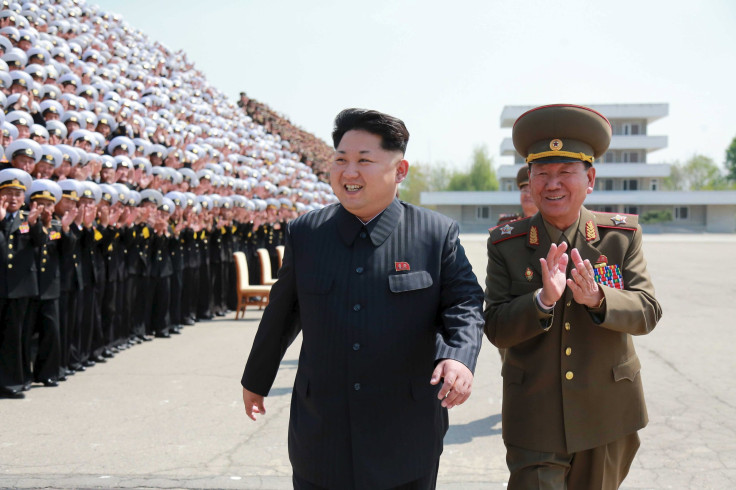Kim Jong-Un Purges More North Korean Military Leadership As Soldiers' Food Rations Slip

Instability is plaguing North Korea’s top ranking officials as the country’s leader, Kim Jong-un, continues to purge the nation’s top brass. Following last week’s dramatic reports of the execution of North Korea’s defense minister for reportedly falling asleep during a high-level meeting, new reports claim that the vice armed forces minister and other military officials have either been executed or demoted for failing to improve food rations for soldiers.
According to South Korea’s Chosun-Ilbo, citing South Korean intelligence reports, So Hong-chan, the armed forces vice minister was last seen in action in late March. So was appointed to his role in November 2013 and was frequently photographed with Kim at high-profile state events, such as visits to the Kumsusan Palace of the Sun, where the embalmed bodies of Kim’s father and grandfather, Kim Jong-il and Kim Il-sung lie. During this year’s annual visit, So was nowhere to be seen. The South Korean newspaper reports that under Kim Jong-un’s leadership, the average tenure of top officials does not typically exceed a year.
Intelligence sources say that So and his staff were removed from their positions after failing to deliver on demands made by Kim to provide increased food rations for the nation’s military. Kim has shifted focus on developing and expanding North Korea’s military capabilities. Satellite photographs over Pyongyang show North Korea’s nuclear plant doubling in size from 2010 to 2012, raising international concern of the nation’s nuclear ambitions. Along with investing in technical capabilities, Kim is reportedly also investing in the country’s manpower.
Under So’s leadership, Korean People’s Army generals were ordered to increase food rations for soldiers and make sure they were well fed. Intelligence sources said that daily food rations were instead cut in order to boost rice reserves. Military rice reserves were severely depleted after Kim dipped into the supply to feed soldiers during special commemorative events earlier this year on the birthdays of the late Kim Jong-il and Kim Il-sung on Feb. 16 and April 15, respectively.
After a particularly dry winter, industry experts are concerned North Korea's poor harvests will compound the country’s already scarce food supplies. North Korea’s wheat and barley crops will be affected by the lack of rainfall this winter and continued to be below average in 2015. “We’re concerned about seed scarcity and the low level rain and snowfall,” John Aylieff, the deputy Asia director at the U.N.’s World Food Program, told the Washington Post from Pyongyang. “All of these things are raising concerns about the winter harvest this year.”
When Kim took the helm in late 2011, he mostly inherited his father’s cabinet and advisers. Over his tenure, however, Kim has gotten rid of many of his father’s loyal confidants, some of whom were family members. In December 2013, reports said Kim had executed his uncle by marriage, Jang Song Thaek, a key figure in maintaining economic relations with regional ally China.
© Copyright IBTimes 2024. All rights reserved.






















